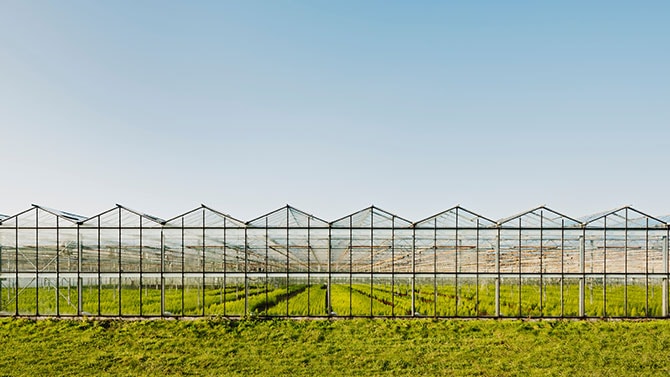{{item.title}}
{{item.text}}

{{item.title}}
{{item.text}}
The ‘Fit for 55 package’ includes revision of several regulations and directives and some new pieces of legislation. Here you find a brief overview of the following other parts of the package.
The renewable energy directive has two main functions: defining what energy sources are regarded as ‘renewable’ and setting out binding targets for renewables in Europe’s energy mix. The proposal aims at a huge increase in the EU's renewable energy generation capacity and sets an increased target to produce 40 per cent of our energy from renewable sources by 2030 (the target was 32 per cent). Specific targets are proposed for renewable energy use in transport, heating and cooling, buildings and industry. Furthermore, the sustainability criteria for the use of bioenergy are tightened, including a prohibition to source biomass for energy production from primary forests, peatlands and wetlands.
From 31 December 2026, Member States shall grant no support to the production of electricity from forest biomass in electricity-only-installations, unless such electricity meets certain conditions (EU sustainability framework for bioenergy).
The Effort Sharing Regulation (ESR) sets national annual targets for greenhouse gas emissions in the built environment, mobility, agriculture and the small industry (non-ETS). The ESR targets are translated into binding targets at the Member State level.
Next to a carbon price signal (EU ETS), clear targets are needed to drive change in the revised Effort Sharing Regulation (ESR), which will empower Member States to take national action to tackle emissions in the buildings, transport, agriculture, waste and small industry (non-ETS industry) sectors.
Under the current legislation, EU Member States have binding annual greenhouse gas emission targets for 2021-2030 for these non-ETS sectors.
This proposal upgrades national targets in line with an EU-wide reduction of 40 per cent in the ESR sectors compared to 2005 by 2030. Member States contribute to the overall EU reduction in 2030 with targets ranging from -10 per cent to -50 per cent below 2005 levels. So different Member States have different targets.
Applying emissions trading (EU ETS) to new sectors (building, road transport, maritime transport) complements the other policies of the package to drive changes in public and private investments, consumer behaviour and business practices. The European Commission’s impact assessments show that a decision to not apply emissions trading to these areas would require much stronger regulatory measures in all sectors than proposed in this package, notably in fuel standards, renewable energy and energy efficiency as well as taxation.
The European Commission has pledged to review and revise, where necessary, the existing legislation to meet the 2030 greenhouse gas emission target, including the Energy Efficiency Directive. To reduce overall energy use, the Commission proposes amendments to the Energy Efficiency Directive, including a more ambitious binding annual target for reducing energy use at EU level. The goal is to almost double the annual energy saving obligation for Member States. As part of this, the public sector will be required to renovate 3 per cent of the total floor area of all public buildings each year to bring down energy use. Furthermore, the proposal includes standards on how the national contributions of the individual Member States are to be determined. The Commission proposes to set a benchmark of 49 per cent of renewables in buildings by 2030 and to require Member States to increase the use of renewable energy in heating and cooling by +1.1 percentage points each year, until 2030.
Under current EU legislation adopted in May 2018, EU Member States have to ensure that accounted greenhouse gas emissions from land use, land use change or forestry are balanced by at least an equivalent accounted removal of CO2 from the atmosphere in the period 2021 to 2030.
The LULUCF Regulation implements the agreement between EU leaders in October 2014 that all sectors should contribute to the EU's 2030 emission reduction target, including the land use sector.
The proposal sets - amongst other - out the overall Union target of net greenhouse gas removals in the LULUCF sector to 310 million tonnes of CO2 equivalent in 2030.
The 2014 Alternative Fuels Infrastructure Directive (AFID) required EU countries to develop national policy frameworks (NPFs) for developing publicly available refuelling and recharging points for alternative fuel vehicles and vessels. This Directive aims to improve coordination of alternative fuel infrastructure development to provide the long-term security needed for investment in the technology for alternative fuels and alternative fuel vehicles.
The revision of this Alternative Fuels Infrastructure Directive is presented as a Regulation (repealing the directive). This revision seeks to ensure the (minimum) availability and usability of a dense, widespread network of alternative fuels infrastructure throughout the EU. All users of alternative fuel vehicles (including vessels and aircraft) need to be able to move through the EU at ease, enabled by key infrastructure such as motorways, ports and airports and with adequate payment options.
The current legislation on CO2 emission performance standards for new cars and light commercial vehicles, Regulation (EU) 2019/631, sets targets for the EU fleet-wide average CO2 emissions. The European Commission proposal for a revised regulation provides for
According to the European Commission, the revised Alternative Fuels Infrastructure Directive (AFID), which incentivises the rollout of recharging and refuelling infrastructure, is a necessary complementary instrument to address the market barrier on the deployment of mobility infrastructure.
The European Commission mentions that there are also important synergies between the new CO2 emission standards and a strengthened EU ETS and the Renewable Energy Directive as proposed. The new EU ETS and the Renewable Energy Directive will drive decarbonisation of the power generation, so that zero-emission vehicles, incentivised by the new CO2 emission standards, are progressively powered by renewable energy sources thus achieving decarbonisation of full well-to-wheel emissions.
ReFuelEU Aviation aims to cut emissions in the notoriously carbon-intensive aviation sector by increasing the amount of green jet fuel used within the EU.
The European Commission proposed this Regulation in order to ensure a level playing field for sustainable air transport. It will increase the uptake of sustainable aviation fuels (SAFs) by aircraft operators and the distribution of sustainable aviation fuels at Union airports.
The European Commission is proposing an obligation for aviation fuel suppliers to ensure that all aviation fuel made available to aircraft operators at Union airports contains a minimum share of sustainable aviation fuel, including a minimum share of synthetic fuel.
The proposal also establishes the obligation for aircraft operators to ensure that the yearly quantity of aviation fuel uplifted at a given Union airport is at least 90 per cent of the yearly aviation fuel required.
The proposal provides for a transition period of 5 years (from 1 January 2025 until 31 December 2029) in which aviation fuel suppliers may supply the minimum share of sustainable aviation fuel as a weighted average over all the aviation fuel they supplied across Union airports for that reporting period. Annex I to the proposal defines the minimum shares of sustainable aviation fuel, including the minimum shares of synthetic fuel, of the aviation fuel to be supplied.
FuelEU Maritime aims to decarbonise the shipping industry by ramping up the use and production of sustainable alternative fuels.
This proposed regulation lays down uniform rules imposing:
The proposed regulation applies to all ships above a gross tonnage of 5000, regardless of their flag in respect to:
The Regulation does not apply to warships, naval auxiliaries, fish-catching or fish-processing ships, wooden ships of a primitive build, ships not propelled by mechanical means, or government ships used for non-commercial purposes.
The Social Climate Fund shall provide support to Member States for the financing of the measures and investments included in their Social Climate Plans. The general objective of the Fund is to contribute to the transition towards climate neutrality by addressing the social impacts - in particular to support vulnerable households, micro-enterprises and transport users in coping with the price impacts - of the inclusion of greenhouse gas emissions from buildings and road transport into the scope of the EU ETS.
The Social Climate Fund will start in 2026, one year prior to the extension of the ETS to include buildings and road transport (ETS II). In the beginning, the fund will be financed through the revenues obtained from auctioning 50 million ETS allowances (estimated at around 4 billion Euro). Once the ETS extension enters into force, the SCF will be funded from auctioning ETS II allowances up to an amount of 65 billion Euro, with an additional 25 percent covered by national resources (amounting to an estimated total of 86,7 billion Euro).
The new fund will provide EU countries with money to support their measures and investments intended to increase energy efficiency of buildings, to carry out building renovation, and to decarbonise heating and cooling of buildings, including the integration of energy from renewable sources and to finance zero- and low-emission mobility and transport. The measures should benefit vulnerable households, micro-enterprises and transport users who will be particularly affected by the change. Planned actions will need to be laid out in the national energy and climate plans that are submitted every year to the European Commission.
The new EU Forest Strategy presented together with the Fit for 55 package, as well as, the forthcoming New Soil Strategy, EU Nature Restoration Law and Carbon Farming Initiative planned for later in 2021, will further strengthen the EU’s natural carbon sinks, ensure that biodiversity has a key place in the overall approach and support the crucial social and economic functions of forestry and forest-based sectors.

Energy - Utilities - Resources Industry, Tax, Partner, PwC Netherlands
Tel: +31 (0)65 154 18 97

Partner, Energy transition and sustainable energy, PwC Netherlands
Tel: +31 (0)65 160 08 61

Juliette Marsé
Director (Tax) - Energy, Utilities & Resources, PwC Netherlands
Tel: +31 (0)63 419 61 08

Mohammed Azouagh
Senior Manager - Tax, Sustainability and Incentives, PwC Netherlands
Tel: +31 (0)62 380 36 54

